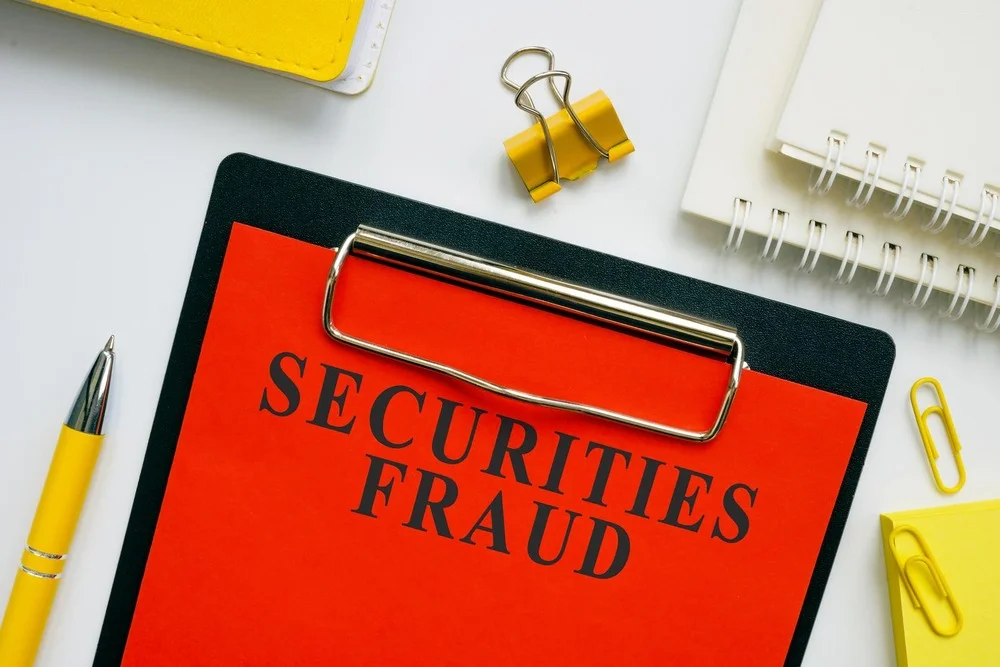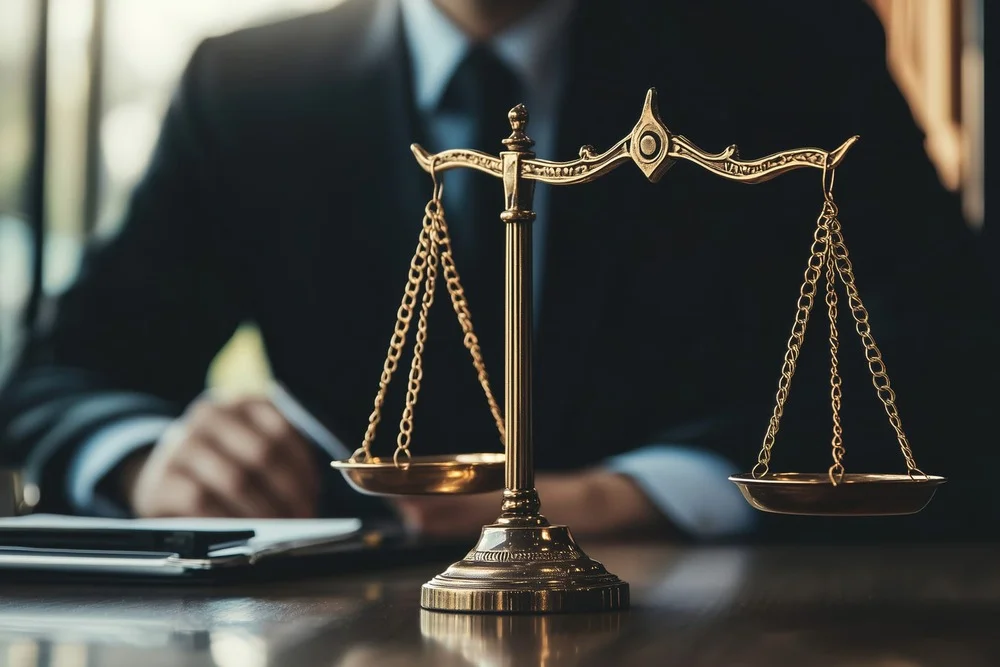Regulatory Compliance: Why You Need a Cryptocurrency Lawyer
- Insights & News
- March 4, 2025
Regulatory Compliance: Why You Need a Cryptocurrency Lawyer
Cryptocurrency has grown rapidly in recent times, drawing investors, companies, and banks. Cryptocurrencies such as Bitcoin, Ethereum, and other altcoins have changed international finance, opening up opportunities and posing new challenges. The more cryptocurrency is adopted, the more regulation issues arise; thus, compliance has become crucial for people, startups, and businesses in this industry.
Regulators and governments continue to pass laws to prevent fraud, money laundering, and tax evasion. This creates a culture where compliance is not just recommended but required.
Without legal counsel, cryptocurrency companies are vulnerable to legal disputes, financial penalties, or operational disruptions. A cryptocurrency lawyer helps businesses understand and comply with these regulations so that operations remain legal and undue risks are prevented.
The Role of a Cryptocurrency Lawyer
Definition and Responsibilities
A cryptocurrency lawyer specializes in digital asset regulations and helps clients adhere to local and international laws. Their role involves advising startups, investors, and exchanges on compliance, drafting legal documents, handling disputes, and representing clients in regulatory matters. These legal professionals ensure businesses do not unknowingly violate securities laws, tax regulations, or anti-money laundering requirements.
Key Areas of Legal Expertise
A cryptocurrency lawyer offers assistance in several critical areas:
- Regulatory compliance: Ensuring businesses follow financial and securities laws when operating in crypto-related industries.
- Contracts and agreements: Drafting smart contracts, partnership agreements, and terms of service for cryptocurrency platforms.
- Taxation: Advising on cryptocurrency tax obligations, ensuring proper reporting and payment.
- Litigation and defense: Representing clients in disputes, fraud claims, or regulatory investigations.
- Token offerings: Assisting companies with legal compliance for Initial Coin Offerings (ICOs) and Security Token Offerings (STOs).
- Intellectual property protection: Advising on patent and copyright protection for blockchain-based innovations.
- Corporate structuring: Helping businesses determine the best legal structure for compliance and tax efficiency.
Why Cryptocurrency Compliance is Essential
Global Regulatory Challenges
Nations regulate cryptocurrency differently. Some have positive regulations on digital assets, while others limit them with strict laws to avoid their use. A cryptocurrency attorney helps businesses understand such differences and encourages international and local regulations compliance. The lack of global cryptocurrency regulation makes it complex, and the demand for legal counsel is higher.
Anti-Money Laundering and Know Your Customer (AML/KYC) Compliance
The majority of governments require cryptocurrency businesses to follow AML and KYC requirements. These standards avoid financial offenses by verifying users’ identities and monitoring suspicious transactions. A lawyer cryptocurrency specialist ensures that businesses possess adequate policies in place, reducing the risk of legal repercussions.
Failure to comply with AML and KYC responsibilities can have significant consequences in terms of fines, business suspension, and even prosecution. Cryptocurrency exchanges, wallets, and DeFi platforms will have to incorporate strict compliance routines to avoid offending.
Taxation and Reporting Requirements
In most jurisdictions, cryptocurrency transactions are taxable. Investors and businesses are required to report losses, gains, and transactions to tax authorities. Failure to comply may result in an audit or penalty. The cryptocurrency attorney informs clients of their tax liability and maintains compliance with reporting.
Cryptocurrency taxation regulations are evolving every day, and legal guidance is required for businesses handling multiple transactions, cross-border transactions, and staking rewards. A legal expert assists customers in avoiding tax penalties and availing themselves of possible deductions or exemptions.
Securities and Token Offerings
Token sales can be considered securities, and thus, they are strictly regulated. Token-selling firms that don’t adhere to securities laws risk legal or regulatory action. A cryptocurrency project lawyer ensures that they adhere to security rules to avoid legal issues.
Businesses looking to launch a new token must carefully determine whether it qualifies as a security. If so, compliance with SEC regulations and similar international requirements is necessary. Legal counsel assists in structuring token offerings to prevent regulatory disputes
When You Need a Cryptocurrency Lawyer
Establishing a Cryptocurrency Business or Exchange
Starting a cryptocurrency business is full of complex legal issues. From company registration to the issuance of licenses, a cryptocurrency lawyer helps to steer clear of regulatory landmines. Structure by the lawyers ensures companies gain credibility and avoid closure due to non-compliance.
A legal expert assists in drafting user agreements, compliance with data privacy regulations, and structuring business operations to prevent tax liabilities. Ignoring these legal matters can lead to serious financial and operational losses.
Facing a Regulatory Investigation or Lawsuit
Authorities continually scrutinize cryptocurrency projects for potential violations. A competent cryptocurrency lawyer is essential whether a project is under SEC scrutiny or the subject of an investor suit.
Legal representation can significantly influence the outcome of such cases.
Regulatory questions might still be posed even when a firm believes it is complying with the law. A cryptocurrency business lawyer prepares sufficient documentation, responds to government inquiries, and defends clients in court.
Designing Smart Contracts and DeFi Projects
Smart contracts and DeFi platforms pose new legal issues. To be successful in the long term, these technologies need to be compatible with existing financial laws. A cryptocurrency lawyer analyzes smart contracts, recommends regulatory risk, and helps design legally compliant DeFi projects.
Because smart contracts are automatic, they can inadvertently violate the law if poorly designed. A cryptocurrency lawyer ensures compliance and minimizes legal risks associated with algorithmic financial transactions.
Settling Cryptocurrency Disputes
Conflicts in the cryptocurrency environment arise from failed transactions, fraud, or breach of contract. A cryptocurrency lawyer represents clients in arbitration or the courts, settling disputes expeditiously and by the law.
Companies and investors usually have difficulty retrieving lost money or encounter scam ICOs. A cryptocurrency attorney advises on conflict resolution, attempting to retrieve funds or negotiate settlements.
How to Choose the Right Cryptocurrency Lawyer
Experience in Blockchain and Crypto Law
It is important to choose a lawyer with extensive experience in blockchain and crypto laws. Digital asset laws change continuously, and an experienced attorney keeps up with the latest developments.
A lawyer with experience in the area has strategic advice to provide, allowing businesses to avoid legal complications and stay compliant with relevant regulations.
Familiarity with International and Domestic Regulations
Cryptocurrency transactions often involve cross-border activities. Hiring a lawyer cryptocurrency expert who is well-versed in both local and international laws ensures that businesses remain compliant across different jurisdictions.
Some countries have specific licensing requirements for crypto exchanges, wallet services, and DeFi platforms. A lawyer well-versed in international laws helps clients avoid compliance issues when doing business in foreign countries.
Reputation and Client Reviews
Evaluating a lawyer’s reputation helps in making an informed decision. Reviews from previous clients, professional awards, and success stories for similar cases indicate credibility and experience in handling cryptocurrency legal matters.
Startups and established businesses should request referrals and conduct thorough research before selecting a lawyer for cryptocurrency legal matters.
Cost and Legal Fee Structures
Attorney fees are based on the complexity of a case. Some attorneys offer hourly and flat-fee legal services. Knowing the fee arrangement in advance allows clients to plan accordingly for cryptocurrency legal services.
Cost is a consideration, but experience and a success rate should be more important in making a decision. The correct attorney can potentially save a business from fines, lawsuits, and compliance problems.

Conclusion
- Hiring a cryptocurrency lawyer is a proactive step for individuals and businesses in the digital asset industry. As governments impose stricter regulations, legal guidance ensures compliance, reduces risks, and protects investments. Whether launching a startup, dealing with taxation, or handling disputes, professional legal assistance provides peace of mind and safeguards business operations.
- Seeking professional legal counsel before making significant cryptocurrency decisions helps avoid complications in the long run. A qualified cryptocurrency lawyer offers valuable insights and protects clients from potential legal challenges and financial penalties.



